Precise electromyography testing that reveals what’s really causing your numbness, tingling, or weakness.
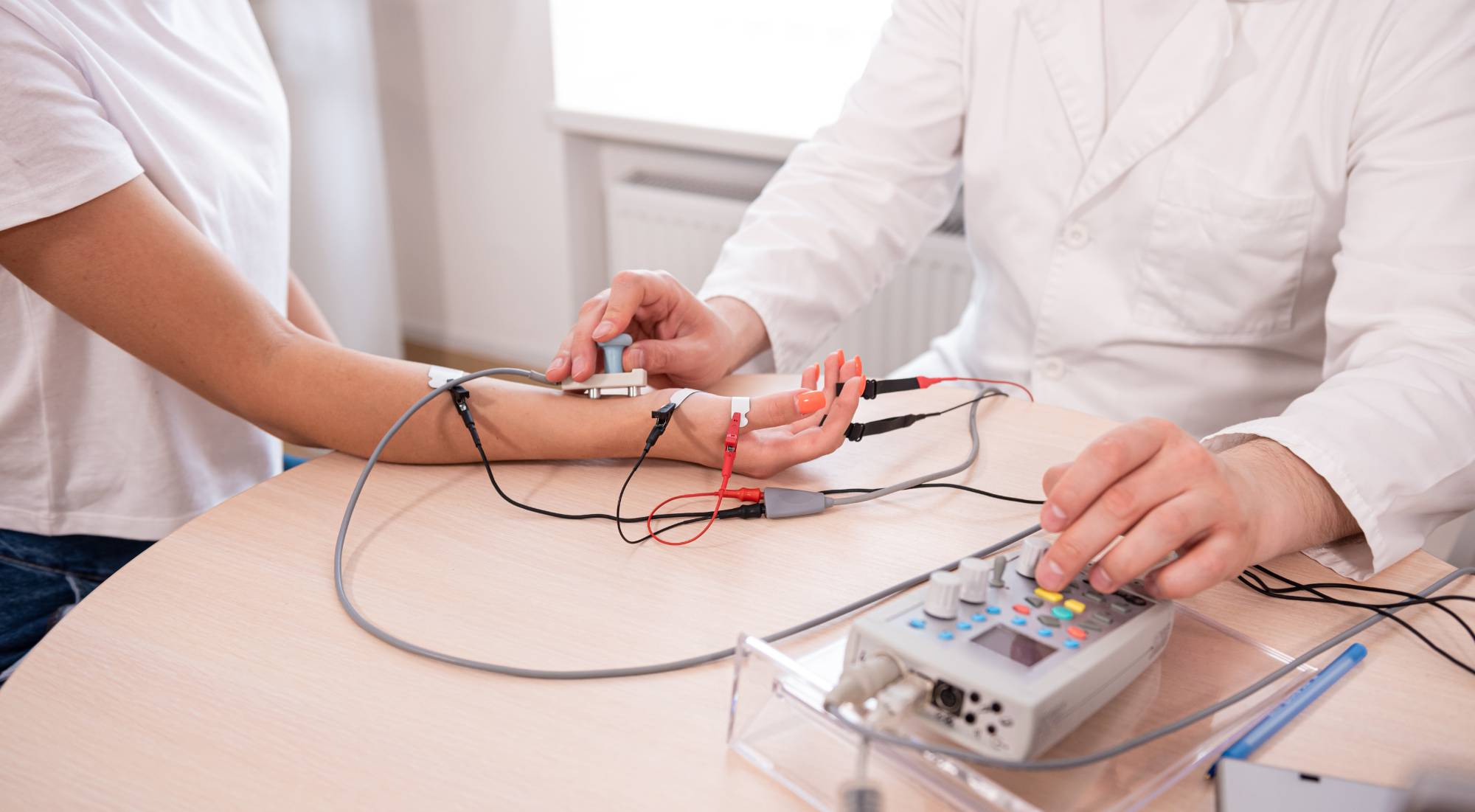
Reviews
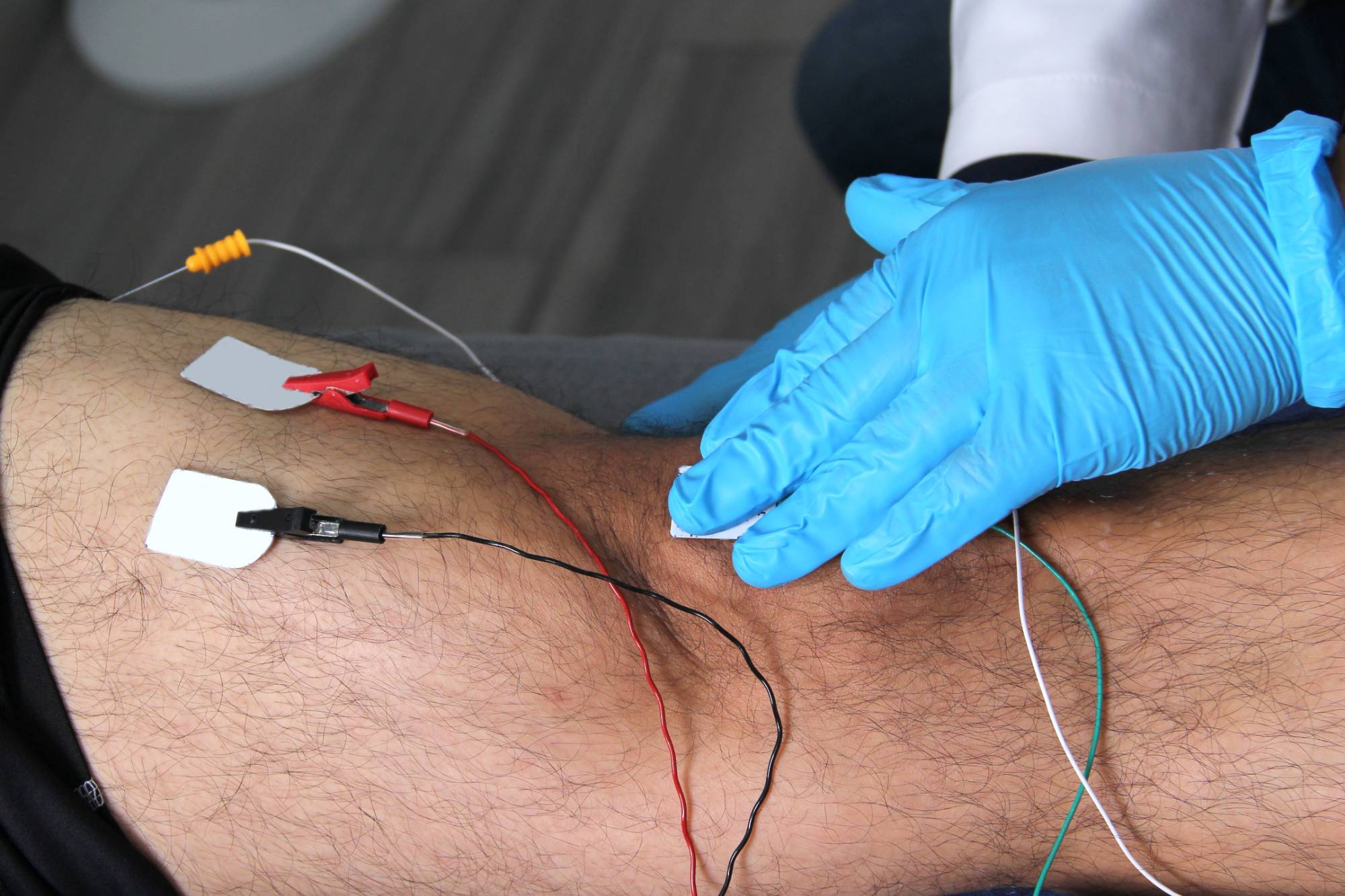
You’ve been dealing with strange sensations in your hands, arms, legs, or back. Maybe it’s numbness that comes and goes. Maybe it’s tingling that keeps you awake. Maybe it’s weakness that makes simple tasks frustrating.
EMG testing gives you concrete answers. This diagnostic procedure measures how well your nerves and muscles communicate, pinpointing exactly where problems exist and what’s causing your symptoms.
Instead of wondering if your symptoms are “all in your head” or guessing about treatment options, you’ll have clear data about your nerve function. That means targeted treatment plans, realistic expectations about recovery, and peace of mind about what you’re actually dealing with.
NY Spine Medicine has been serving Alphabet City and Manhattan residents for years, specializing in spine and nerve-related conditions. Our medical team understands that nerve symptoms can be confusing and concerning.
We focus specifically on neurological and spinal issues, which means our physicians see these types of problems every day. We know how to perform EMG testing efficiently and interpret results accurately.
When you’re dealing with nerve symptoms, you want doctors who’ve seen your exact situation hundreds of times before. That’s what you get here.
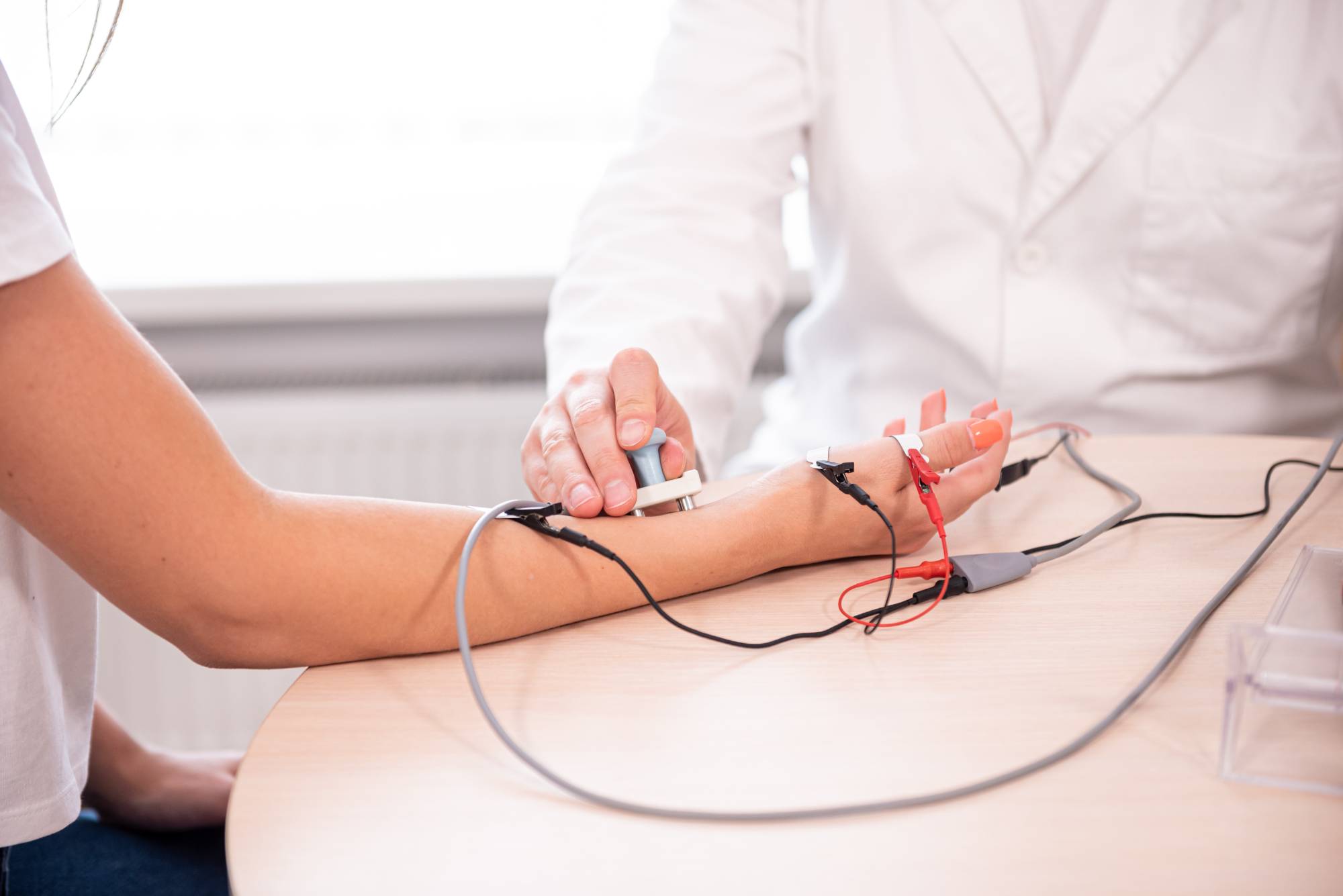
EMG testing involves two parts: nerve conduction studies and electromyography. The nerve conduction study comes first, where small electrical pulses are applied to your skin to measure how fast signals travel through your nerves.
Next, the electromyography portion uses thin needle electrodes inserted into specific muscles to record electrical activity. You’ll be asked to relax certain muscles, then contract them, so the equipment can measure how well your nerves control muscle function.
The entire process typically takes 30-60 minutes depending on which areas need testing. Most patients describe the sensation as uncomfortable but tolerable. Results are available immediately, and we’ll explain what the findings mean for your specific situation and treatment options.
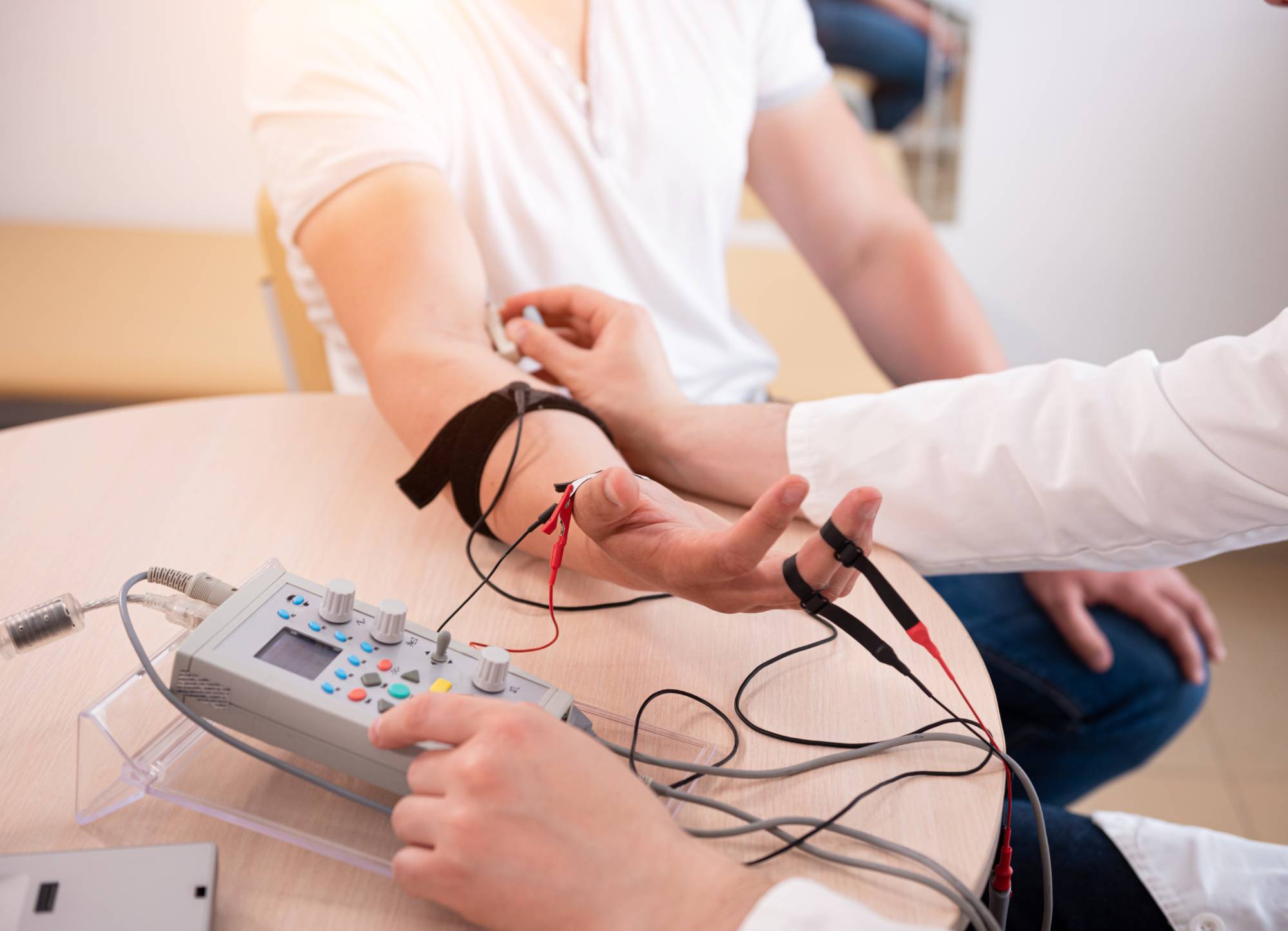
Ready to get started?
Our EMG testing at NY Spine Medicine includes both nerve conduction velocity (NCV) studies and electromyography measurements. This combination provides a complete picture of how your peripheral nervous system functions.
Testing can evaluate conditions like carpal tunnel syndrome, pinched nerves, muscle disorders, peripheral neuropathy, and nerve damage from injuries. Our equipment measures nerve signal speed, muscle response patterns, and identifies areas where nerve transmission is blocked or slowed.
You’ll receive detailed results explaining which nerves or muscles show abnormal function, the severity of any problems found, and how these findings relate to your symptoms. This information becomes the foundation for developing an effective treatment plan specific to your condition.
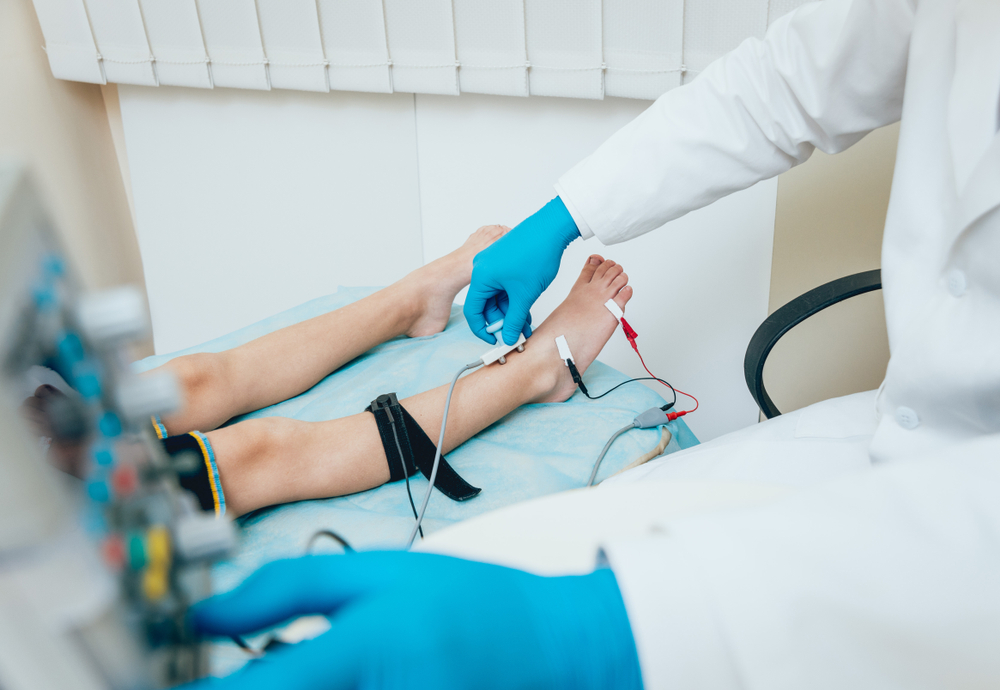
New York:
Florida:
Support